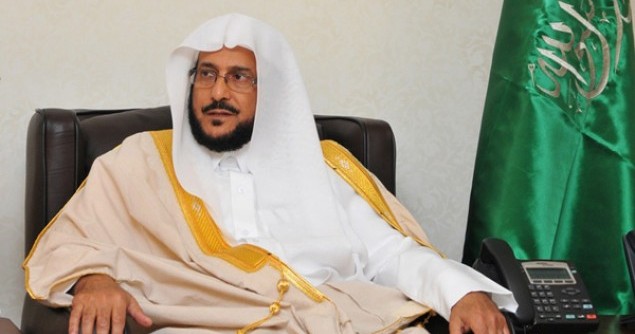Virtue in the Kingdom: Profile of New President
The Commission for Promotion of Virtue and Prevention of Vice has a new president. Abdul-Latif Al-alsheikh is a descendant of Mohammad bin Abdul-Wahhab, the preacher whose pact with Muhammad bin Saud helped to establish the first Saudi state more than 250 years ago. But the first time I heard of Al-alskheikh was in 2010 when he joined a heated debate in the country about gender mixing.
On that debate, Al-alsheikh took what many considered a moderate stance when compared to the official stance taken by the Commission. “Gender mixing is here by need and necessity,” he told al-Jazirah daily. “Such practice was not born today or in this age, but rather has existed for a very long time, including the early days of Islam.” Al-alsheikh went on to say that Sharia did not ban gender mixing, but rather allowed it within certain limits.
Other notable names who took this side of the debate included Sheikh Ahmad al-Ghamdi, former head of the Commission in Makkah, former judge Eisa al-Gheith and the current Justice Minister Mohammad al-Eisa. On the opposite side of the debate you had more traditionalist clerics who warned that any easing of gender segregation rules will lead to dangerous consequences such as sexual promiscuity and complete social disintegration.
At the time, the Commission was welcoming a new president to its ranks. Abdul-Aziz al-Humayyen was appointed for the post as part of a major cabinet reshuffle ordered by King Abdullah on Valentine’s Day 2009. Al-Humayyen was hailed as a reformer, and he promised to fix the Commission and end transgressions. That did not happen. Five months ago, he was replaced by Al-alskheikh.
Before being appointed as a new head of the Commission on January 13, 2012, Al-alsheikh served as an assistant general secretary of the Council of Senior Ulema as well as an advisor to the former governor of Riyadh Prince Salman bin Abdulaziz. He is married and has four children.
Like his predecessor, Al-alsheikh came to the new job with promises of change and reform. On his first few weeks he made the headlines when he announced that the Commission patrols will no longer chase suspects in the streets. The decision was well-received because several people have been killed or injured in high speed chasing incidents in recent years, but also made some conservatives uneasy as it indicated that the new president seemed more than willing to limit the powers enjoyed by his feared men.
Al-alsheikh has had some quiet months on the job since then, but that did not last for long. The Nail Polish Girl affair came and forced him to speak up.
The typical response to stories like this in the past was usually very defensive. Typically, the Commission president or spokesman man would come out to defend and justify the aggressive behavior of their staff in the field, and accuse the media – local and international – of targeting the Commission and being biased against it.
However, things went a bit differently this time. Instead of defending them, Al-alsheikh attempted to play down the story and instead directed criticism at his own men saying Commission members who abuse their power would be fired immediately.
That was unusual, to say the least.
Are we finally going to see change in the Commission? Is Al-alshiekh serious about reform? And even if he has a true desire to fix it, can he actually do that? The Commission annual report for last year offers some numbers that could help us answer the aforementioned questions.
According to the report, most of the employees in this government body are not very educated. The Commission employs 4389 men: 60% of the these employees do not have a college degree, and half of those did not even finish high school. It is safe to assume that most of them are field officers, the ones you usually see in malls and patrolling streets in white GMC trucks.
The report indicates that the Commission field offers have arrested 392,325 persons for two types of offense: religious and moral. That number translates to 1.5% of the country’s population, and it shows a 20% increase over the previous year
The news items that I have read summarizing the report’s conclusions do not provide more details regarding the nature of the offenses, but based on history we can probably guess that the definition of what actions count as offenses depend on the interpretation the Commission field officers. The very same officers who severely lack education and who seem to act as if they are entitled by God to perform their job, even if that meant infringing on citizens’ rights and invading their privacy.
Looking at the numbers, history and the status quo in the country, fixing the Commission might seem like an impossible mission. There are very few reasons to be optimistic, and so many ones to be pessimistic. Abdul-Latif Al-alshiekh has to turn it around and somehow make it work in a modern country where citizens know their rights and fight for them. He will probably need a magic wand. Would his men let him have one




2 Responses to Virtue in the Kingdom: Profile of New President
You must be logged in to post a comment Login